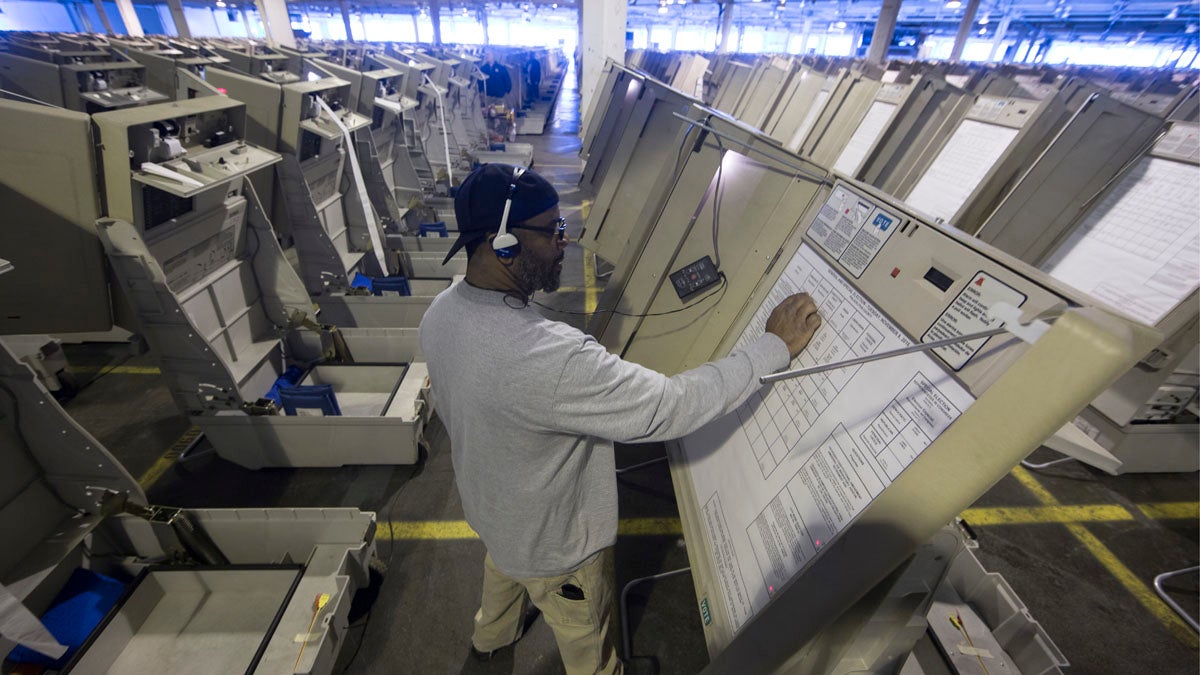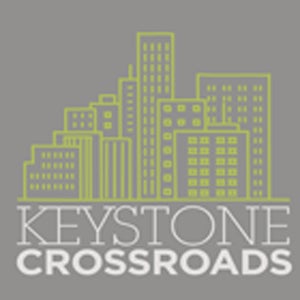Pennsylvania’s last minute voting guide

A technician works to prepare voting machines to be used in the upcoming presidential election
It’s Election Day and registered voters across Pennsylvania head to the polls. Here’s what you need to know:
The basics
In Pennsylvania, polls are open from 7 a.m. until 8 p.m. As long as you’re in line by 8 p.m., you’re allowed to cast a ballot. If you’re not sure where to vote, look up your polling place using you’re home address.
Once you’ve made it to the polls, there’s nothing more frustrating than entering the voter booth, drawing the curtain and then seeing a bunch of unfamiliar names and offices on the ballot.
Find out which races and candidates will be on the ballot in your district with the VOTE411 Voter Guide from the League of Women Voters.
Key rules on ID, interpretation, and intimidation
Only first-time voters or people who are voting at a new polling place are required to show ID. Acceptable forms of photo ID include PennDOT driver’s license or PennDOT ID card, U.S. passport, U.S. Armed Forces ID, student ID, employee ID and more. If you don’t have a photo ID, a current utility bill, paycheck, government check, or firearms permit are also accepted.
Three counties in Pennsylvania, Berks, Lehigh, and Philadelphia are required to provide translation and interpretation to Spanish speaking voters with limited English. Other counties where translation is available but not required include York, Dauphin, Luzerne, Lancaster and Lebanon. Voters are allowed to bring someone with them to assist with translation in the voting booth as long as it’s not an employer or a union representative. This is also the case for voters with a disability.
There’s been a lot of buzz about possible voter intimidation and voter fraud at the polls in Pennsylvania. Candidates and political parties are allowed to appoint poll watchers to keep on eye on the election process. Poll watchers must be qualified and registered voters in the county where they will be observing the polls. The U.S. Department of Justice will also monitor some polling places in Philadelphia, Allegheny, and Lehigh counties.
Ongoing coverage
For news coverage and results on Election Day and afterward, listen to and follow your Keystone Crossroads station, WHYY, WITF, WESA, and WPSU. And for complete national election coverage check out NPR.
Electionland
A new project from ProPublica, WNYC, Google News Lab, the CUNY Graduate School of Journalism and others including some of Keystone Crossroads’ partner stations are asking voters to report concerns at the polls.
Are you seeing long lines? Machine breakdowns? Voter intimidation? People who aren’t allowed to vote? Text ELECTIONLAND to 69866 about anything that jeopardizes an orderly and fair election.
Local reporters at WHYY, WESA, and WPSU and other outlets get the notices and can report them out. You can also follow the Electionland blog for updates and @electionland on Twitter.
WHYY is your source for fact-based, in-depth journalism and information. As a nonprofit organization, we rely on financial support from readers like you. Please give today.



